Lab Members
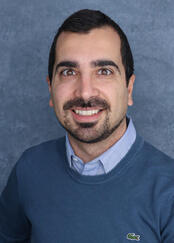
Stefano earned an MSc in medical biotechnologies from the University of Naples ‘Federico II’, Italy. He started his scientific journey working in Dr. Luciano Di Croce’s lab at the CRG Institute in Barcelona where he characterized accessory proteins of the Polycomb complex involved in mammalian embryogenesis. He then spearheaded his PhD research project in Dr. Geneviève Almouzni’s lab at the Curie Institute Research Center in Paris to elucidate the dynamics of histone H3 variants during embryonic stem cell differentiation at the single-molecule level using super-resolution microscopy and high-throughput sequencing assays. By applying his expertise in chromatin and epigenetics applied to stem cells, Stefano joins the Ho Lab to deepen molecular mechanisms arising from disease models of neuronal aging and ALS.
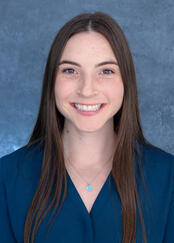
Ashley graduated from University of California, Riverside with a bachelor of science in neuroscience. While at UCR, she worked in the Santhakumar Lab researching traumatic brain injury, specifically looking at the role of toll-like receptor 4 (TLR4) on synaptic inhibition in the normal versus the injured brain. In the Ho Lab, Ashley is characterizing transgenic C9orf72 animals for behavioral deficits and neuropathology in response to CRISPRi gene therapy candidates.
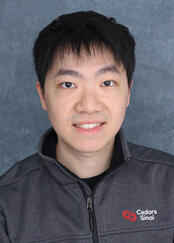
Ken earned his bachelors degree in biochemistry from the University of Washington, Seattle. During his time at UW, he joined Dr. Young Kwon’s lab, where he screened genes involved in cell dissemination. He then earned a masters degree from Johns Hopkins University, working with Dr. Daniela Drummond-Barbosa to investigate regulation and development of ovarian stem cells under different stress conditions. He then worked as a research assistant in Dr. Alexey Veraksa’s lab at UMass Boston, where he conducted neural stem cell research. Ken is passionate about conducting translational research related to neural diseases and stem cells. He joined the Ho Lab as a PhD student to study neuronal maturation, aging processes, and how to model sporadic neurodegenerative diseases using iPSCs. In his free time, Ken enjoys scuba diving, hiking, and cooking.
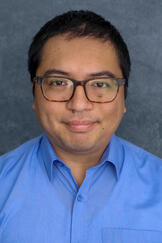
Michael completed his undergraduate studies in biology at California State University, San Bernardino, where he developed an interest in stem cells and regenerative medicine. He then worked as a laboratory technician at Cedars-Sinai, where he received specialized training in the use of induced pluripotent stem cells (iPSC) to study neurodegeneration and pancreatic disorders. He joined the Ho Lab as a graduate student to study the genetic programs involved in aging.

Oksana Shelest earned her master’s degrees in neuroscience from Moscow State University in Russia and in chemistry from Kharkov State University in Ukraine. She has extensive experience in animal surgery and in vivo electrophysiology as well as in animal colony management and behavioral testing in disease and drug addiction models. Shelest is passionate about working toward understanding nature, one of the greatest human abilities, and she studies animal behavior in the context of human neurological disorders.
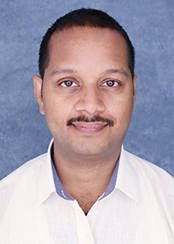
Brijesh earned his master’s in Biochemistry at the University of Allahabad, India and pursued doctoral studies in neuroscience from the National Brain Research Center, India. He explored the novel role of UBE3A, a ubiquitin E3 ligase in the pathogenesis of Alzheimer’s disease. To further his research skills, he moved to Columbia University to advance his career as a postdoctoral research scientist under the supervision of Dr. Alejandro Chavez, where he focused on developing CRISPR/Cas9-assisted tools, specifically high-throughput gene knock-in technologies and targeted mutations to explore subcellular phenotypes in neurodegenerative disease. In the Ho Lab, Brijesh will be leading CRISPR-engineered neuron maturation and aging projects to model iPSCs for sporadic neurodegenerative diseases like Alzheimer’s disease (AD) and amyotrophic lateral sclerosis (ALS).
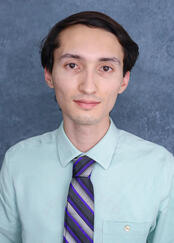
Ian Tindel completed his undergraduate degree in biology from California State University, Los Angeles (CSULA), with a minor in computer science. Tindel has previously engaged in research on wing imaginal disc development at CSULA and osteoarthritic clinical data at the VA Greater Los Angeles Health Care System. He is currently analyzing the declining motor behavior of aging wild type and amyotrophic lateral sclerosis (ALS) mice.
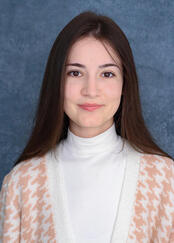
Benisa, an international student from Albania, graduated from CSUN, with a bachelor of science in biotechnology. During her time as an undergraduate research assistant in Dr. Cindy Malone’s Gene Regulation Lab, she investigated the role of transcription factor binding sites in regulating the Transducin-like Enhancer of Split 1 gene, aiming to uncover its expression mechanisms and identify potential targets for cancer therapy. Currently in the Ho Lab, she is working with patient-derived iPSCs to develop relevant models and potential therapeutic candidates for C9orf72 ALS.
